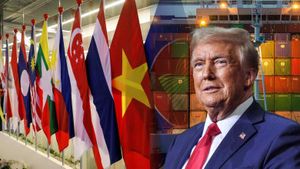The annual COP29 Climate Summit, recently held in Baku, Azerbaijan, concluded with mixed outcomes and raised urgent questions about the future of global climate action. Critics have pointed to the summit's inability to deliver decisive measures to tackle one of the most pressing issues of our time: climate change. With many nations feeling the heat from their constituencies and the world increasingly aware of the climate crisis, expectations were high going in; yet, as the final gavel came down at 5:30 am on November 24, many left feeling underwhelmed.
Disappointment loomed over COP29, as the negotiations yielded results debated by observers. An agreement was reached to establish new climate finance goals, with wealthier nations pledging $300 billion annually by 2035 to help developing countries. While heralded by some, this figure drew sharp criticism from nations like Nigeria, which deemed it “a joke,” and India's representatives labeled it as “too little, too late.”
The climate finance deal was positioned as the centerpiece of the negotiations, dubbed the 'Finance COP.' Originally set at $100 billion annually from 2009 to 2025, the new amount is meant to kick off from 2026. Developing countries had pushed for commitments much more substantial, with figures ranging well above $400 billion proposed by some parties. The frustration among developing nations became apparent as they accused wealthy nations of dragging their feet and attempting to sidestep significant financial responsibilities.
Meanwhile, another contentious element captured attention—the lack of binding agreements on fossil fuel extraction. For years now, fossil fuels have been labeled the elephant in the room during climate discussions. While COP28 had introduced the notion of transitioning away from fossil fuels, COP29 failed to ratify any substantial commitments focused on curbing fossil fuel production. Although some discussions hinted at reforms to fossil fuel usage, the prevalent influence of oil-rich nations, particularly Saudi Arabia, blocked substantial advancements during this year's talks.
The struggle to balance climate finance commitments with fossil fuel reduction has plagued COP discussions for too long. While there was talk of public finance directed toward climate efforts, the absence of concrete supply-side agreements leaves room for skepticism. Fossil fuels remain deeply embedded within many national economies, and until there is clarity and accountability around supply reductions, attaining climate goals remains challenging.
Governments did not only clash over finance and fossil fuels; they appeared at odds about the essence of climate action as well. The conference also sought to advance what had been established last year: the UAE Dialogue. This aimed to explore how to implement recommendations from the global stocktake process, which assessed each nation’s progress under the Paris Agreement. Unfortunately, Saudi Arabia’s intervention blocked any references to fossil fuels, leading to disappointment from many negotiating parties eager to pursue climate-friendly policies.
A tangle of complex proposals marked discussions leading to COP30, set to take place next year in Brazil. Negotiators struggled to agree on two pivotal targets; one aimed at increasing energy storage capacity by 1,500 gigawatts by 2030, the other focused on adding 25 million kilometers of new power grids by 2030. Critics argue these targets are must-haves for any serious energy transition, but failure to reach consensus held them back, and they will now need to be debated again before future summits.
A key sticking point across negotiations was the Just Transition Work Programme (JTWP). Intended to support workers and communities impacted by the shift from fossil fuels to clean energy, discussions stalled over diverging views on human rights and labor protections. Many developing countries' representatives insisted on meaningful financial commitments to enable such transitions, arguing without specific funds, such plans would be little more than abstract concepts.
COP29 also saw efforts to create national carbon markets—a space for trading emissions offsets. The outcome of this had the potential to substantially influence market participants’ relationships with emissions and current climate actions. The establishment of these systems may offer clarity and accountability to governments and industry alike. While those involved applauded this step, they caution it remains to be seen how effective these measures will be.
Despite COP29's challenges, there were notable moments of advocacy from various nations. Countries like Namibia made headlines by calling for increased investments in oil and gas exploration, drawing ire from many climate activists who argue this could undermine the summit’s primary goal. Meanwhile, nations like Botswana and Colombia focused on blocking such damaging proposals, emphasizing the need for prioritizing renewable energy initiatives.
How will COP29 impact the future of national commitments heading toward COP30? Some observers stress clearer and more ambitious commitments need to be made, coupled with accountability from wealthier nations. The reality is COP meetings are not simply gatherings; they must be platforms for real change, demanding cooperation and honest efforts from all involved.
One of the more significant debates post-COP29 is how these global efforts can translate to local realties and hold countries accountable. Strategies discussed to secure financial backing included potential new revenue streams such as global taxes on pollutive industries. While some see promise here, others remain skeptical, noting the challenge of balancing these plans with the realities on the ground.
The recent election of Donald Trump as the U.S. president also casts shadows over climate action, highlighting vulnerabilities as skeptics feared any environmental benefits gained through COP29 could be stalled once again. Some expected Trump to pursue rollback policies of climate-friendly initiatives, thereby stalling investments and generating uncertainty. The pressure is on nations to respond and counteract any potential negative impacts from the shifting political landscapes.
Overall, COP29 showed the enormity of the climate crisis and the stakes involved. Climate advocacy must retain momentum, as many left Baku with more questions than answers. Nations have to do more than make pledges; they must back them up with meaningful actions before the urgency of our climate reality becomes undeniable. Just as the discussion has broadened to focus on finance, fossil fuels, and future commitments, the need for earnest cooperation and ambitious action becomes crystal clear.
With climate negotiations stalling on pivotal issues and growing skepticism hanging over emissions commitments, the road toward COP30 will be fraught. Yet, as activists and alarmed citizens look to their leaders, they hope for real solutions, not just dialogues, as the next years may be decisive for us all.



